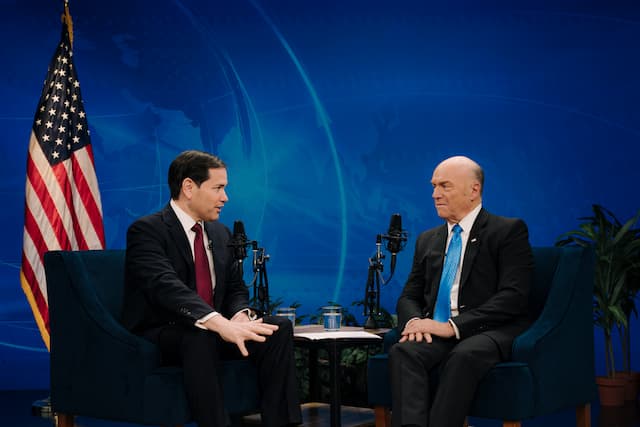How the king evaluates his people (Matthew 25:34-46)
Our criteria don’t match his.
We’ve been celebrating how the world will be when Christ’s kingship extends to all the people of the world, when all the nations are under his reign. This is what finally brings peace, resolving every conflict.
How does he achieve that goal? His Father, our eternal sovereign, gives the kingship to the son of man, so he has the responsibility to sort out all the people of the earth. Like a shepherd, he separates sheep from goats (25:32).
So how does he know the difference? What criteria does the king use to evaluate his subjects and decide who are his?
Our criteria
Ask around and people give you different answers as to how he should judge those who deserve to be included in his eternal reign and those who do not:
- On balance: In popular thought and in many religions, justice is a pair of scales. If the good someone has done outweighs the bad, on balance they pass the test.
- Forgiven: In much Christian thought, the problem is the gap between our sinfulness and God’s holiness. Since God cannot countenance any evil, forgiveness for sins is the only way to be saved. How you receive that forgiveness depends on your tradition. In Catholicism, it involves confession, penance, and absolution. In Calvinist traditions, forgiveness is given to the elect. In Arminian traditions, forgiveness is received by asking for it (such as praying the Sinner’s Prayer).
- In church: In practice, Christians tend to divide the sheep from the goats on the basis of whether they attend church. This way of thinking goes all the way back to the roots of the ancient church, both Eastern Orthodox and Roman Catholic. As early as the third century, the bishop of Carthage declared, “He cannot have God for his Father who has not the Church for his mother” (Cyprian, De unit. eccl. 6). Many still think this way, as if those who don’t attend church are not part of his flock.
Truth is, our criteria don’t work. In Jesus’ story, both the sheep and the goats are confused over how the shepherd has sorted them. He doesn’t trust us to judge each other. He explicitly forbids it, because we’re likely to destroy each other (Matthew 13:29).
His criterion
The criterion the king uses to judge his people is profoundly simple. How we treat the king is evidenced by how we treat the kingdom. When we don’t care for the people in his care, we show that we don’t care for him.
Matthew 25:31-46 (my translation, compare NIV)
31 When the son of man enters his splendour and all the angels with him, then he will sit on his splendid throne. 32 The nations will be assembled before him, and he will separate them from one another the way a shepherd separates the sheep from the goats, 33 and he will place the sheep to his right and the goats to his left.
34 Then the king will say to those on his right, “Come, blessed of my Father, inherit the kingdom prepared for you from when the world was founded. 35 For I was hungry and you gave me food, I was thirsty and you gave me a drink, I was a stranger and you included me, 36 needing clothes and you dressed me, unwell and you took care of me, locked up and you visited me. 37 Then the righteous will answer him, “Lord, when did we see you hungry and fed you, or thirsty and gave you a drink? 38 When did we see you a stranger and included you, or needing clothes and dressed you? 39 When did we see you unwell or locked up and visited you? 40 In reply, the king will say to them, “Truth is, whenever you did it for the least of these my family, you did it for me.”
41 Then he will say to those on the left, “Be gone from me, accursed, into the eternal fire that has been prepared for the devil and his angels. 42 For I was hungry and you did not give me food, I was thirsty and you did not give me a drink, 43 I was a stranger and you did not include me, needing clothes and you did not dress me, unwell and locked up and you did not visit me. 44 Then they also will answer, “Lord, when did we see you hungry or thirsty, a stranger or needing clothes, or unwell or locked up and did not serve you? 45 Then he will answer them, “Truth is, whenever you did not do it for the least of these, you did not do it for me. 46 They will head off into eternal punishment, but the righteous into eternal life.”
This is different to how we often imagine the final judgement. It’s also very different from how the kings of this world evaluate your treatment of them.
If you had an audience with Queen Elizabeth, you would learn the protocol to honour her majesty: how to curtsy or bow, waiting until you’re spoken to, what title to give her, what topics are permissible, how and when to back away. Presidents and monarchs expect you to treat them as special people. Dishonour their dignity — or even move suddenly — and you’re likely to be arrested as a threat to their power.
But our true king had no bodyguards to take a bullet for him, no palace to keep him safe. He doesn’t ask to be treated as superior. The son of man to whom the Father gives the kingdom is okay with having nothing while even the animals have places to stay (Matthew 8:20). The son of man came not to be served but to serve — to give his life to rescue his people (Matthew 20:28).
That’s an astoundingly low standard for how we treat our king! You can get away with slandering him, calling him evil personified (Matthew 12:30-32). He even asks the heavenly court for leniency for those who assassinate him (Luke 23:34).
But there is one thing this servant king will not tolerate: if you mistreat the people in his care. If he sees you beating your fellow-servants, using his resources to eat and drink to excess, expect to be dissected and thrown out of his kingdom (24:49-51).
The king expects capable people to use the resources he has given us (25:15). It’s how he recognizes his flock: how we treat each other is how we treat his kingship. The difference between his-flock and not-his-flock is evident in how we treat each other. How we treat those who are hungry, thirsty, excluded, needing clothes, unwell, or locked away — well, the king takes it personally.
Remember how he lived among us: experiencing hunger (Matthew 4:2) and thirst (John 4:7; 19:28), excluded (Matthew 27:7) and humiliated (27:35), bearing our infirmities (8:17) and captivity (26:48-50). If that’s how the king restores the kingdom, this is how the kingdom honours its king.
Conclusion
In the world’s justice system, possession is nine-tenths of the law. To the king restoring divine justice, possession is nine-tenths of the problem. If you find that offensive, it’s not me you’re walking away from (19:21-24).
To embody the kingdom of God is to act justly, love mercy, and walk humbly before our heavenly sovereign (Micah 6:8). That’s the truth Jesus embodied. That’s what he expects his kingdom to embody.
We now have an answer for the question we asked earlier. This is what it means to seek first his kingdom and his righteousness, trusting him to provide all we need (6:33).
The king recognizes his subjects by how they treat each other.
Open Matthew 25:31-46.
What others are saying
Irenaeus of Lyons, Against Heresies 4.18.6 (second century):
For even as God does not need our possessions, so do we need to offer something to God; as Solomon says: “He that hath pity upon the poor, lendeth unto the Lord.” For God, who stands in need of nothing, takes our good works to Himself for this purpose, that He may grant us a recompense of His own good things, as our Lord says: “Come, ye blessed of My Father, receive the kingdom prepared for you. For I was an hungered, and ye gave Me to eat: I was thirsty, and ye gave Me drink: I was a stranger, and ye took Me in: naked, and ye clothed Me; sick, and ye visited Me; in prison, and ye came to Me.” As, therefore, He does not stand in need of these [services], yet does desire that we should render them for our own benefit, lest we be unfruitful.
For comparison, here’s how another ancient Jewish writing imagined the judgement scene:
1 Enoch 62:6-14 (James Charlesworth translation):
6 Kings, governors, and all the landlords shall (try to) bless, glorify, extol him who rules over everything, him who has been concealed. 7 For the Son of Man was concealed from the beginning, and the Most High One preserved him in the presence of his power; then he revealed him to the holy and the elect ones. 8 The congregation of the holy ones shall be planted, and all the elect ones shall stand before him. 9 On that day, all the kings, the governors, the high officials, and those who rule the earth shall fall down before him on their faces, and worship and raise their hopes in that Son of Man; they shall beg and plead for mercy at his feet. 10 But the Lord of the Spirits himself will cause them to be frantic, so that they shall rush and depart from his presence. Their faces shall be filled with shame, and their countenances shall be crowned with darkness. 11 So he will deliver them to the angels for punishments in order that vengeance shall be executed on them — oppressors of his children and his elect ones. 12 It shall become quite a scene for my righteous and elect ones. They shall rejoice over (the kings, the governors, the high officials, and the landlords) because the wrath of the Lord of the Spirits shall rest upon them and his sword (shall obtain) from them a sacrifice. 13 The righteous and elect ones shall be saved on that day; and from thenceforth they shall never see the faces of the sinners and the oppressors. 14 The Lord of the Spirits will abide over them; they shall eat and rest and rise with that Son of Man forever and ever.
Related posts
- The king who sorts it out (Mt 25:31-33)
- Kingdom justice: how it comes (Mt 18)
- What about the weeds in God’s world? (Mt 13:24-43)
- Why doesn’t God sort it out? (Mt 13:47-50)
Seeking to understand Jesus in the terms he chose to describe himself: son of man (his identity), and kingdom of God (his mission). Riverview College Dean
View all posts by Allen Browne





